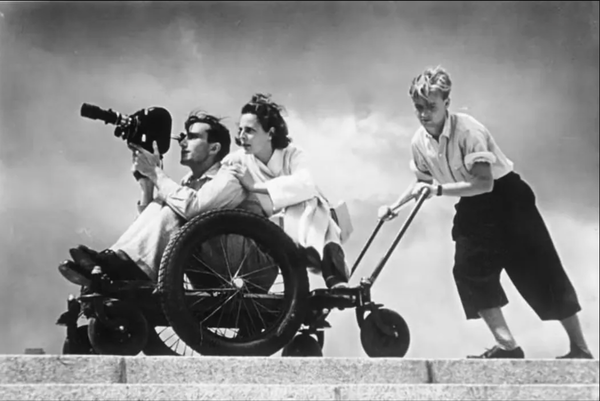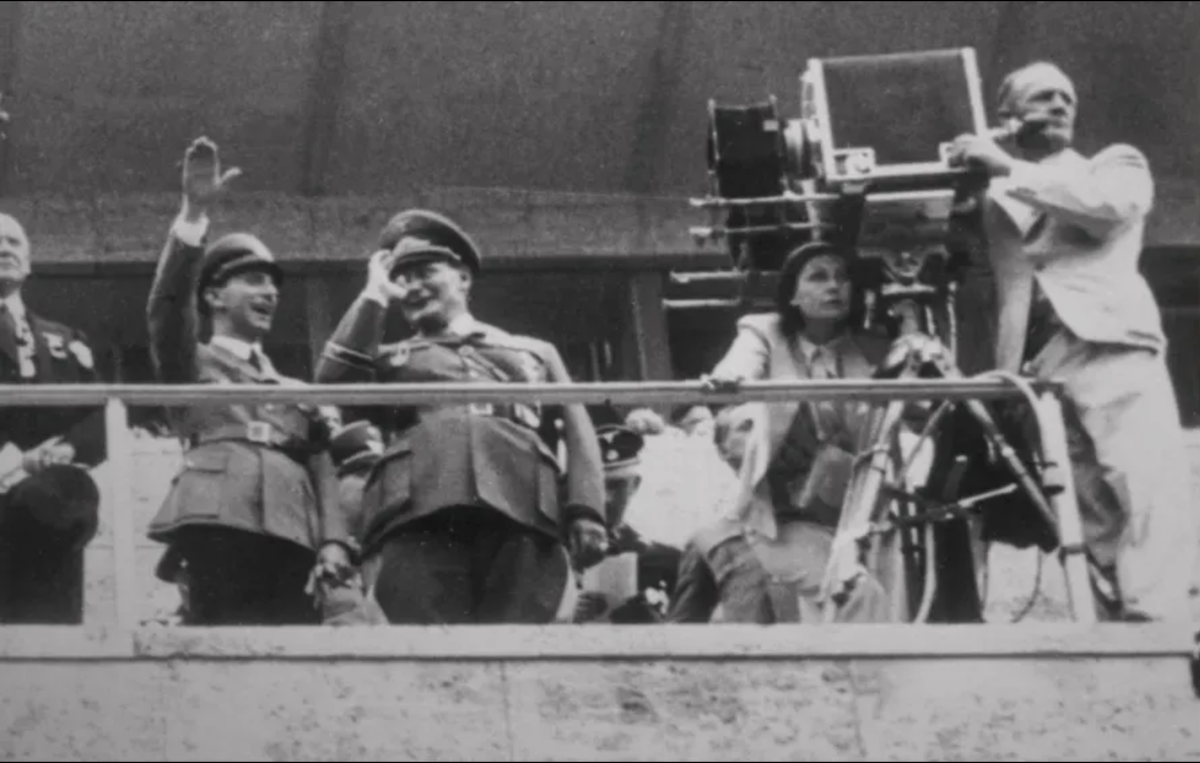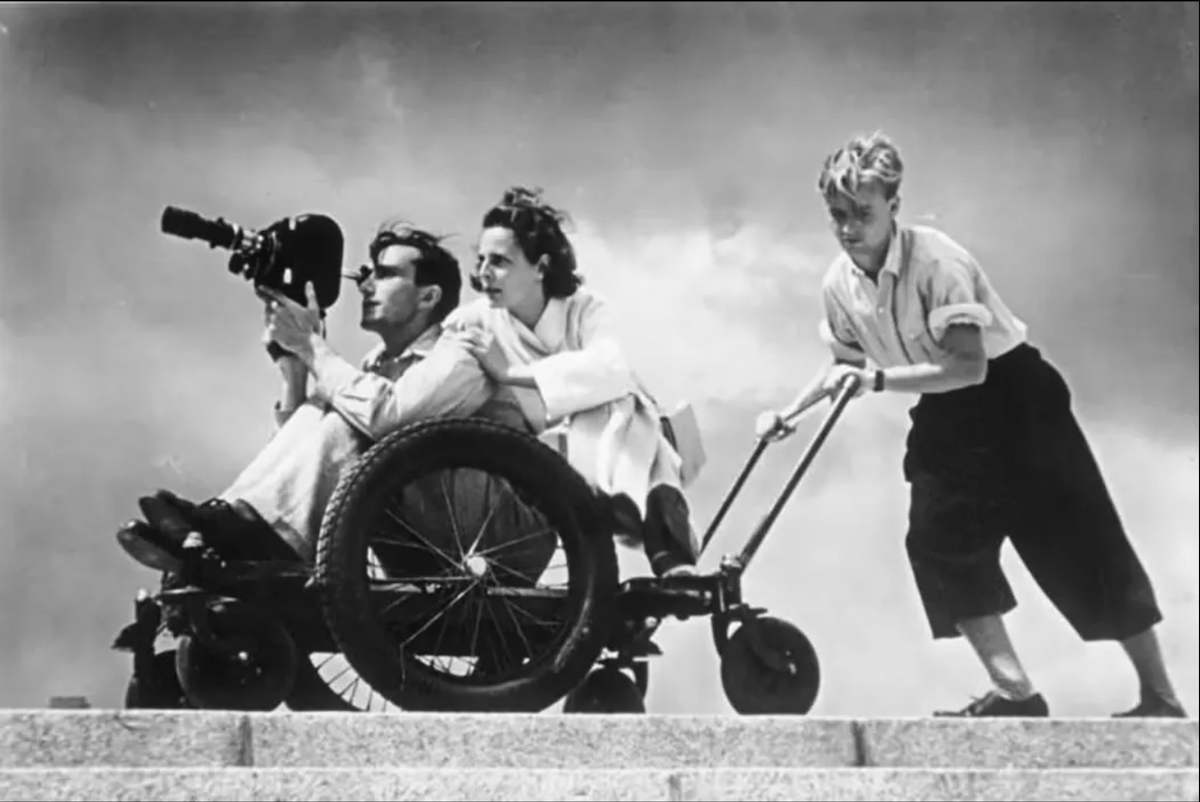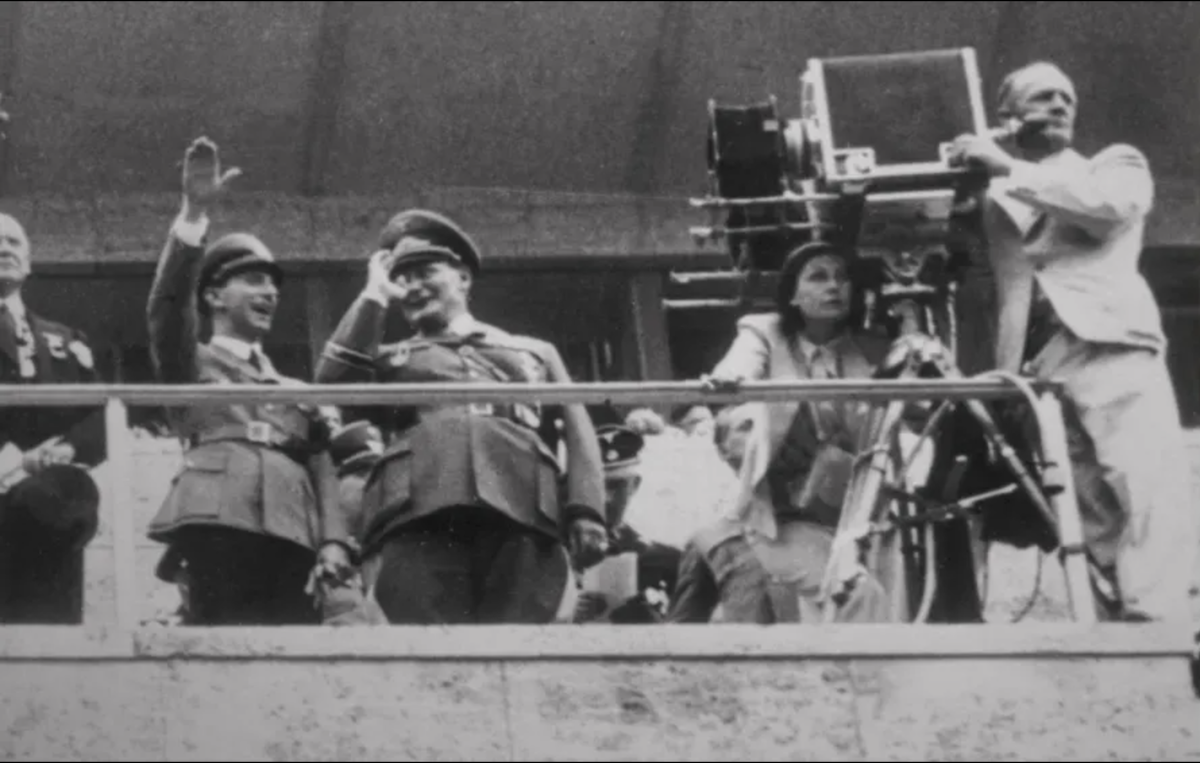"Riefenstahl" at TSL Probes the Legacy of Nazi Cinema’s Most Infamous Auteur
Early female cinematic genius and Nazi propagandist, Riefenstahl's story is one history forgets at its peril.

Early female cinematic genius and Nazi propagandist, Riefenstahl's story is one history forgets at its peril.

History has a way of playing dress-up, especially when the costume closet is full of goose-steps. Take Leni Riefenstahl, the woman who, depending on your angle, was either a cinematic visionary whose eye for motion and light changed film forever—or a Nazi’s dream propagandist who used her gifts to mythologize monsters. Or both. She was the first auteur of fascism, wrapping Hitler in swooping crane shots and slow-motion athleticism until he looked like a god instead of a genocidal crank. And, like a moth with an impeccable sense of composition, she never seemed to realize—or admit—that the flame she was circling burned down the world.
Riefenstahl, a new documentary that screens this weekend at Time & Space Limited in Hudson, takes another long, uncomfortable look at this paradox of beauty and complicity. Directed by Andres Veiel, the film pieces through her life—from her early days as a dancer and actress, to her leap behind the camera with The Blue Light, to her fateful partnership with the Third Reich. It also tracks the long shadow she cast after 1945, when she attempted to rebrand herself as a nature documentarian, photographing Nuba tribes in Sudan and shooting coral reefs as if aquatic ecosystems could wash away history’s stains.
Watching Triumph of the Will today—the infamous 1935 documentary Riefenstahl made of the Nazi’s Nuremberg Rally, complete with gleaming serried ranks, fetishized bodies, and the choreography of mass obedience—it’s impossible not to see echoes in our current moment. The technology has changed (drone shots instead of cranes, algorithmic virality instead of newsreels), but the temptation is familiar: The strongman framed as savior, the crowd framed as ecstatic unity, the spectacle framed as truth. Whether it’s a rally on the Mall or a storming of the Capitol livestreamed on social media, we’re still living inside Riefenstahl’s shadow. She gave the modern demagogue his visual grammar.
The film doesn’t shy from her postwar evasions. Riefenstahl insisted she was an artist, not a Nazi; she claimed ignorance, denial, the kind of cultivated blindness only the supremely self-regarding can manage. And yet, even in her 90s, she was still tinkering with edits, still demanding the last word, still wanting to control her image as tightly as she had once controlled her camera’s aperture.

Leni Riefenstahl with assorted Nazis.
Which is what makes Riefenstahl less a biopic than a mirror. It reflects not just one woman’s artistic brilliance and moral failure, but also the fragility of audiences in every era—including ours—who mistake aesthetics for truth and beauty for goodness. Time & Space Limited, ever the Hudson Valley’s cinematic conscience, gives us the chance to stare at the uncomfortable past and ask what images we’re swallowing whole today.
“Riefenstahl” screens at Time & Space Limited in Hudson on September 26, 28, and 29.

